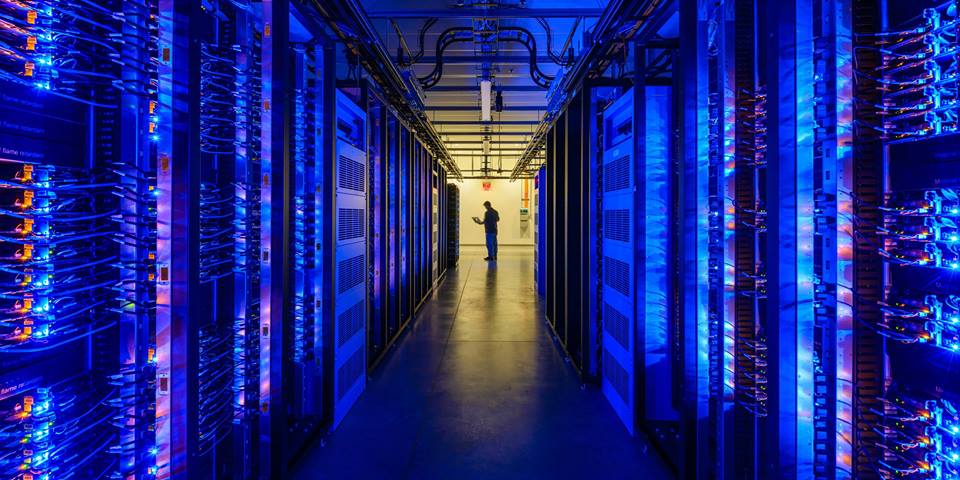The Importance of Data Center Infrastructure for Business Innovation and Job Creation
To take the Philippine economy to the next level, more businesses, policymakers, and ordinary Filipinos need to recognize the value of digital transformation. In particular, the growing importance of robust and reliable data center infrastructure for further developing the national economy needs to be recognized. In this article, we will explore the critical role that data centers play in driving business innovation and job creation as well as how data center and other digital infrastructure investments may ultimately benefit the Philippines.
Data Centers Are Foundational to Digital Transformation:
Digital transformation is the process of integrating technology into different processes in business and in day-to-day life. Digital transformation is often considered to be a net benefit as it removes inefficiencies and simplifies the creation of value, both of which are important for businesses. In almost all instances, this transformation can only be done if there is sufficient computing power, storage, and connectivity to facilitate critical applications.
This is where data centers come in. With much of the world’s data and computing needs now being hosted remotely, better data centers need to be put in place. This will enable businesses and individuals to modernize their operations and processes, which will, in turn, allow everyone to take advantage of new opportunities, such as cloud computing, the Internet of Things (IoT), and artificial intelligence (AI).
Finding an infrastructure company in the Philippines that could facilitate the building of data centers that serve both domestic and global users is no longer as difficult as it was. Aboitiz InfraCapital, a forward-looking local private sector firm, is even investing to build hyperscale campuses with its international partner EdgeConneX. Given current levels of data center investment, the country may eventually become a regional leader in data hosting. As this happens, the country may experience more than just digital transformation and various improvements in quality of life.
Data Centers Create Jobs
Data centers require a skilled workforce to design, build, and operate. All the talent needed to do this is already either present in the Philippines or in the country’s massive diaspora. While still young, the fairly modest Philippine data center industry has already created thousands of jobs. Further expansion into this space will not only create even more jobs, but it will also help offset any potential job losses that may come from ongoing advances in data automation technology.
It’s not just jobs in data center management, IT, and operations, that will be created either. Related industries, such as logistics, construction, and services will also get a major boost. Cumulatively, these jobs will also inject more money into the economy and provide people with more spending power, which may encourage entrepreneurship and more job creation. Additionally, the additional capabilities provided by data centers may create more opportunities for other businesses, which may serve to increase jobs even further.
Data Centers Boost the Economy
More jobs created means more economic and political stability. This improved outlook can help people and businesses get loans that could be used for creating value within an economy. Additionally, the increased productivity afforded by data centers invariably results in a net positive to productivity, as the delays and other hiccups that interfere with business processes are reduced.
As it stands, the Philippine data center industry is already a significant contributor to the Philippine economy. Some recent estimates project the data center industry’s contribution to the Philippine economy to hit about USD 1.79 billion by 2027. The real value to the economy because of improvements to business processes and the long-term enablement of various types of entrepreneurships may be much greater.
Better Domestically-Based Data Centers May Enhance Cybersecurity
Cybersecurity is currently a serious issue throughout the world and the Philippines, in particular. Further investment in domestically based data centers may provide the impetus for local improvements to cybersecurity, as a better cybersecurity environment is a requisite for the setting up of extensive data center operations.
Additionally, once set up, the data centers themselves can help provide better cybersecurity for businesses based locally and overseas. With robust cybersecurity measures in place, businesses can confidently store and process sensitive data, knowing that it is protected from unauthorized access.
Data Centers Encourage Sustainable Energy Use
Though modern data centers are designed to be energy-efficient, they remain extremely power-hungry. And with more businesses seeking to reduce their carbon footprint, countries with vast sustainable energy reserves are a natural choice for hosting new data centers. Iceland is already a data center superpower because of its cheap and plentiful geothermal energy and there is no reason a similarly endowed country like the Philippines can’t do the same.
While the Philippines is historically reliant on fossil fuels for much of its energy needs, the country is currently shifting to renewable energy sources. Aside from geothermal energy, the country is also seeing growing investment in wind, solar, and hydroelectric power generation. A booming demand in data centers may accelerate the country’s progress in developing clean power, reducing the country’s carbon footprint and attracting more businesses that want to benefit from stable green energy sources.
Data center infrastructure is already a critical component of business innovation and job creation in the Philippines, and further investment will only make this truer. With robust and reliable data center infrastructure, businesses of all sizes can modernize their operations and contribute to the country’s economic growth. As the global digital economy continues to expand, the importance of data centers will only continue to grow, domestically and overseas. As such, businesses and policymakers need to understand the value of investing in this critical infrastructure.


























